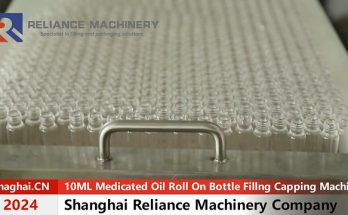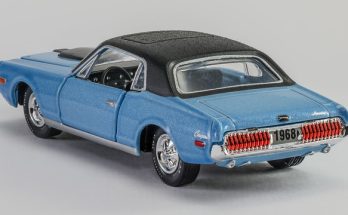
Types of Waterproof Wiring Connectors
Waterproof wiring connectors are used to protect electrical connections from moisture and other elements. They can be made using various materials, including silicone sealant and epoxy resin. Be sure to check the voltage rating of the connector before applying it to an exposed wire.
Waterproof electrical connectors are ideal for any setup that is exposed to moisture or outdoor elements. These connectors are filled with moisture-resistant materials such as silicone, grease, and petroleum to prevent corrosion on the exposed wire ends.
Silicone sealant
Adhesives are essential tools for a variety of projects, from home repairs to big construction work. Silicone sealant is a popular choice for these projects as it adheres to almost any material and can withstand extreme temperatures. It can also be used to caulk gaps and joints. There are several different types of silicone adhesives and sealants, so it is important to understand your project before selecting the right product. Before applying silicone, it is important to clean all surfaces and remove any grime from the surface that you will be working on. This will ensure that the silicone will form a strong bond and last longer.
Different silicones have different properties and applications, and each one has its own advantages and disadvantages. For example, some have better flexibility and adhesion to many materials, while others may be resistant to certain chemicals or even mold growth. In addition, some silicones are odorless and dry quickly. Others have a stronger smell and take more time to dry.
Silicones are ideal for a variety of industrial applications. They are fire-retardant and can prevent wires from contacting other metal surfaces or exposed wires, which could cause a dangerous electrical fault or short circuit. They are also waterproof and can be used in outdoor settings. They are also suitable for use in the fabrication of mechanical and motor body parts. They can be used to seal joints and seams, or for form-in-place gaskets.
Epoxy resin
Epoxy resin is a two-part synthetic polymer material that, when mixed together, undergoes a chemical reaction and forms a hard, strong adhesive substance. It is one of the strongest adhesives available and can be used in a variety of applications. It is also known for its insulative properties and is useful for waterproofing electrical wiring connections. However, it is important to take the proper safety precautions when using this type of adhesive.
There are many different types of epoxy resin, and each has its own specific properties. Standard epoxies are typically composed of aliphatic, cycloaliphatic, or aromatic hydrocarbons. They are used as bonding and coating materials for a variety of substrates, including metals, plastics, glass, ceramics, and stone. They can be further formulated with additives to increase strength or resilience, and they cure at various temperatures.
Conductive epoxies are developed for use with electronics and can be modified to create conductive bonding between metallic surfaces. This allows the epoxy to carry low currents through the joint. These epoxies are used to waterproof wiring connectors connect flexible conductive components like wristbands or floor contacts and rigid grounding.
There are also special epoxies that can be cured at high temperatures, which are useful for connecting heated cables and wires in a confined space. These epoxies are also formulated with additives to improve their electrical conductivity.
Gel-filled wire connectors
The pre-filled gel in these electrical connectors offers superior waterproof connector manufacturer protection from moisture and corrosion. This helps prevent the occurrence of short circuits. The waterproof connectors also help ensure that the connection is insulated from the environment. This makes them a great choice for outdoor lighting installations in areas prone to moisture.
The innovative solder seal water-tight wire connectors are easy to use, with no need for crimping. They are a good option for hard-to-reach areas, as they can be installed without any heat or soldering. They come in a variety of sizes to suit different needs. Solder seal wire connectors are available in kits, making them convenient and affordable. These kits include everything you need to complete the installation, from the wires to the tools needed to install them.
Another type of waterproof wiring connector is the disconnect terminal, which is designed for field serviceability. These crimp connectors can be disconnected and reconnected as needed, and they are ideal for applications that require frequent maintenance. They are usually color-coded to make them easy to identify.
They are used to create a waterproof connection between two or more copper wires. They are commonly found in landscape lighting and irrigation systems. They are a great way to protect the electrical connections in your yard from the elements and other hazards. The best part is that they are easy to install and work with any kind of landscape wire.
Wire nuts
Wire nuts are small, twist-on caps that join two or more wires in an electrical connection called a “splice.” Every light, receptacle and appliance in your home relies on these connections to work properly. Other methods of connecting wires, such as tape and soldering, don’t last as long and are not as safe. While there are many different types of wire connectors, most people choose to use wire nuts because they are easy and secure.
Standard wire nuts are roughly conical in shape and have ridges or wings on the sides to allow for a grip. Some have a transparent body, making it easier to see the wires inside. They can be used with a variety of wire sizes, but you need to make sure that the nut is the right size for the job. Otherwise, the splice won’t be strong enough to distribute electricity evenly.
There are several different types of wire connectors, including gel-filled and waterproof options. Waterproof wire connectors are ideal for outdoor and underground projects because they seal the exposed wire ends and protect them from environmental contaminants. Gel-filled wire connectors are similar to standard twist-on connectors, but they contain a gel that keeps the wire ends from touching and prevents corrosion. They can be used on a variety of wires, from copper to aluminum and from stranded to solid.

